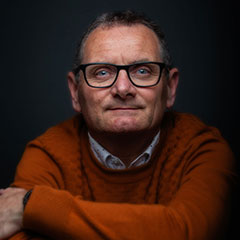
Transcribed by Otter
Danny de Hek 0:00
Today, and now I’m going to give you your name, because I can’t do it really well, because we have a common, some common interests that people will find out about the minute. They’re what’s your name?
Jo McClelland-Phillips 0:11
So I’m Jo McClelland-Phillips.
Danny de Hek 0:14
Excellent. That made my life easier. So thank you very much. Jo, come on today to answer 12 questions with myself. And I’m looking forward to this. So the first one is a real simple question. I hope it’s – Who is your hero?
Jo McClelland-Phillips 0:27
Oh, golly, um, I have several, but I think probably the, the woman I go back to the most is Margaret Atwood, who’s a Canadian author. She, she wrote on Handmaid’s Tale, which a lot of people know because of the TV show. But we studied her in school, and I actually started off hating her in high school. And then I came back to her as an adult and realised how brilliant she is. And beyond her, her writing, which is sensational. I just love her works with the environment and women’s rights and being Canadian, and from same part of Canada’s myself, I really just enjoy her and love her. And I’m always taking notice of what she’s doing.
Danny de Hek 1:14
Because you’re Canadian, and you’re living in Australia.
Jo McClelland-Phillips 1:17
I am Canadian living in Australia. Yes.
Danny de Hek 1:20
It’s a story in itself. I’ll go straight into question number two, what makes you laugh the most.
Jo McClelland-Phillips 1:27
I’m myself, actually, I’m always laughing at myself in good and bad ways. So I tend to make jokes that no one else seems to get, which I think are hilarious. And I make a lot of mistakes. And I mess up a lot, which, when I was younger, would make me really embarrassed and I get really self conscious. But having that my husband who finds the joy and the humour in mistakes, he just, I’ll say something that’s upside down and backwards. And he’ll go, you just say that I’m like, Yeah, I was kind of hoping he missed that one. I was kind of hoping he would just go. But it never does. He always hears it. And it’s really taught me to laugh at myself. So yeah, probably me.
Danny de Hek 2:13
Because of dyslexia, I can value that as well. I think you got to have a sense of humour when you’re wrong, and I got away with it.
Jo McClelland-Phillips 2:20
Yeah. Yeah. I bet I never do with my husband. He always catches me up.
Danny de Hek 2:26
That’s good. Right. So this one’s quite a good one. What is your sorry, what was your first job?
Jo McClelland-Phillips 2:35
Actually, ironically, my first job was a scribe. So in uni, um, I got a job writing notes for other kids who had learning disabilities and were struggling with taking notes in class. And I would use my note taking skills to write notes and then photocopy them for them. I got I got paid for that. I think I got like, $8 a class or something really pathetic. But yeah, that was my first job. So it’s kind of ironic that my first job was actually helping people who are neurologically divergent.
Danny de Hek 3:07
And can you write Can you read your own writing or? Fine?
Jo McClelland-Phillips 3:12
Yeah, so um, I had a lot of help in high school and elementary school. And my note taking skills were quite good in, in uni, they’re Messier. Now, nobody could read my notes now, because my shorthand has, has gotten quite quick. But I’m very good. I would probably if I were doing it now, I’d probably type it because I’m actually faster typer than writer but my shorthand got so synced that it got quite messy and hard to read. And it’s almost like decoding because I don’t use full words. But in uni, I was still writing quite neatly, and I knew how to pull the points out, so I could keep up. So when I was to end, it was actually the only time I actually took notes was what I was doing for someone else. If you look at my notes from classes, where I wasn’t doing it for someone else, I was drawing pictures and not doing anything useful at all. So it was actually quite helpful for me to actually have notes.
Danny de Hek 4:10
When I write my own notes, I often will find it hard, trying to get my flow, the conversation, you know, out of my notes, and it’s quite annoying. Sometimes I was petting anyone that tried to read my notes, because even I don’t know what they are. So you have your own shorthand, which is really cool. What’s your biggest complaint? Are you self employed at the moment? Because
Jo McClelland-Phillips 4:35
I’m self employed. I’m also doing like a little side hustle. As well at the moment, but hopefully that’ll jump away soon. But yes, I have my own business.
Danny de Hek 4:45
So what’s your biggest complaint about your job is the question but if you don’t have a job, so what’s the biggest complaint about what you’re actually trying to do? Perhaps might be a bit of question.
Jo McClelland-Phillips 4:54
Um, well, I guess the biggest complaint is just Oh, I don’t know, um, I kind of want to be I know where I’m going. And I kind of be there already. So I get frustrated with myself because there’s lots of little decoding little tasks between me and my ultimate goal. And I’m, I’ve put a hard rule on myself that I can’t hire a virtual assistant until I reach a certain numerical value. And I haven’t reached it yet. So I’m trying to get to that goal. So I can hire somebody to do all the nitpicky tasks that I hate doing all the decoding, and I’m the, you know, the stuff that’s sort of outside of my comfort engineer zone, and just, um, I want to hire someone to do that. But I’m not letting myself so that’s frustrating, because I’m quite hard on myself, and I don’t let myself break my own rules.
Danny de Hek 5:46
I run a business networking company, and I’ve got lots of different industries in the company. And I always say to people, 40% of working yourself as doing all your administration, your marketing, and you have to do that, regardless of what industry you’re in. And I think that’s Yeah, the thing is when you get to that stage where you can take the power away from your business, and then you can just focus on your creative side. I think it would be a joy, Krishna. See, what’s the craziest thing you have ever done? So it could be something sporty or something crazy?
Jo McClelland-Phillips 6:21
Well, I guess it depends on your definition of crazy. I moved from Canada to Australia. I don’t think that’s crazy. Um, I swam with Stinger ice. That’s pretty cool. In the Cayman Islands. Um, this is before Irwin. Irwin was killed. So um, but yeah, I went in swim with stingrays. They it’s like a very soft for like underwater like a like a kitten. It’s really soft.
Danny de Hek 6:51
Alright. Rob them and they like it or they’re quite well, yeah,
Jo McClelland-Phillips 6:55
well, these were these were ones that we brought them buckets of calamari, and there was a boat that took people out there regularly. So they were quite tame. Because they were used to people coming out and touching them and bringing them food. I had one. I was silly. I didn’t take my rings off. And I had one try to set my ring off my finger. But he didn’t. But he got my finger and he’s, like, strange.
Danny de Hek 7:24
We sang glasses and go to the zoo and play with the monkeys. It was a lot. What about school? Okay, so you went to school somewhere to be dyslexic? So what was your favourite subject in school, which is quite a good fitting question.
Jo McClelland-Phillips 7:39
Art, I loved art. And English was frustrating because I never got to do what I wanted to do in English. I love English. But they were you know, I I very rarely was reading a book I wanted to read or writing what I wanted to write. In like, year eight, nine, we got to do a lot of creative writing. But as I went on, it was a lot more essays and, and book reports and that sort of which I wasn’t quite as fun. So, but art, you know, we were given a lot more free rein and I like to do what I want to do so well.
Danny de Hek 8:15
Okay, aside from the cities, what’s one thing you couldn’t go a day without? Just a coffee?
Jo McClelland-Phillips 8:25
dye coke? Yeah, I am. I am a diet coke junkie. And yeah, so there’s always Diet Coke in my house and horrible. We’re going away this weekend. And I’ll pack die coke. Make sure that I’ve got some
Danny de Hek 8:43
I’m not sure the year but I think it was 1998 that Coca Cola made enough Coca Cola to keep the Niagara Falls running for three minutes. partner and I will watch the chase and I think they said 200 million or billion bottles of Coca Cola drink each day with something ridiculous. Like they’re so heavily you’re feeding the economy. Okay, so what more Are you wanting to edit your business right now?
Jo McClelland-Phillips 9:16
I’m more kids to help. I’m just I know the struggles that they’re facing. And I know how hard it is and inside it is and how broken and wrong they feel. And because I was that kid, and I know that a lot of them are not telling anybody. Um, which is why I’m I’m talking to parents and carers and and people who care about these kids, to talk to them and how to bring them out of their shell and to get them to verbalise what actually, they’re feeling and thinking not just about reading but about life. Because if, if they know what’s going on inside their little heads, Then they can start to help them and I can help them help them, which is, which is huge. Um, my mom is always is telling me, why don’t you tell me? You know that happened to you or you felt like that or why don’t you tell me and I’m like, I don’t know. You know, and my mom I had a good relationship, but I couldn’t tell her because I didn’t tell anybody. I think I thought I was scared of I, I think I just thought I was wrong and broken, I was scared people would find out and be angry with me. And I was taught if I just tried harder, I could like stop being dyslexic.
Danny de Hek 10:30
It doesn’t work. I was, I was a guy called Cameron, who’s probably hopefully going to be on my podcast, but I watched a TED talk with his and he is he Why don’t parents get their children to learn stuff, they suck it. And I thought that’s so cool. And I think the school system to me was always teaching me how to do stuff, but I keep failings. So I just left school thinking are stupid. And often think, you know, they realise I had a patient for photography, then give me a camera and take, you know, do stuff like that. And let me figure out how to make money out of it.
Jo McClelland-Phillips 11:04
Yeah, yeah, no, my mom said my mom’s a teacher and she says school is the only time in your life you’re expected to be good at everything. Yeah.
Danny de Hek 11:14
What three items would you take with you on a desert island?
Jo McClelland-Phillips 11:19
Well, Diet Coke. And, and pen and paper.
Danny de Hek 11:32
I was painted papers on the go together.
Jo McClelland-Phillips 11:36
Oh, you let me have one more. Okay. I’m supposed to take water or something. No, I’m in a tent. I’m not much of a camper and the idea of having to sleep on the sand under the sun. Sounds really bad. I’ve got one more thing taken 10. So at least I’ve got some kind of shoulder
Danny de Hek 12:03
a little bit. Okay, so if you had a warning label, what would you say?
Jo McClelland-Phillips 12:10
Oh, gosh. Um, no. Um, she makes bad jokes.
Danny de Hek 12:22
Say that. Caution jokes. Join me again. Okay, so do you do just like or, like surprises? So I
Jo McClelland-Phillips 12:36
love surprises. You know, I love surprises. Um, my daughter is really bad at keeping secrets and constantly like she’ll tell me Oh, my, oh, I’m good. You know this for your birthday. Like, don’t tell me to my birthday. Like, just I look like I I love the surprise if there’s something I want. And I’m like, hoping for I’ll just buy it for myself. I just I love getting something that’s a surprise or going somewhere that’s a surprise and, and trying new things and doing new things. And, um, I love that it’s a really wonderful it’s an experience in and of itself, which is almost better than getting something you wanted
Danny de Hek 13:18
by a lot of stuff on AliExpress simply because I like it when the courier here the courier to do it. Oh, what is it? What’s here on a white.
Jo McClelland-Phillips 13:28
Forgot what you got.
Danny de Hek 13:30
I think sitting on here, this here, see this gadget here. For those who are on the podcast, remember, we’ll see but you put it in front of your TV and you can programme it on your cell phone and I’m so excited at the time when I bought it I still haven’t even plugged into use it. Just got it sitting here looking at me thing but the whole idea of purchasing and having on the doorstep was so exciting. All right, he is a funny one. Now I’ve never read a book in my life. The way most people would What is your favourite book that you like to read? Usually, we talked earlier and you said that you have read quite a lot of books.
Jo McClelland-Phillips 14:10
Yeah, I’m slow reader, obviously. Um, and but my mom when I was learning to read, um, my mom had some really good advice, which was don’t like as I was reading aloud to her don’t stop her if she gets the word wrong. And so if it’s, if it’s two words that are similar, that that have a similar sound to them. If it has a similar meaning, it won’t even matter. I’ll just keep going. If it confuses me, because I’ve kind of come up with I can’t think of any examples right now. Um, so like,
Danny de Hek 14:45
keep the flow of the reading going. Yeah,
Jo McClelland-Phillips 14:47
yeah, like ticket Just let me have the flow. So um, I, I’ve done that where I’ll read the reading to myself. And I’ll realise that I miss something completely. I’m like when When did that person arrive? There’s like somebody talking here. And I have to go back like five or six pages in the novel to find where this person showed up because they’re like starting to talk. And like, I didn’t know they were there, where they come from. And so that happens. And I’m a really slow reader that way. But the book I always go back to that I have read the most is through the looking glass and what Alice finds their sequel tell Soderlund. I pick it, I pick them both up. The second one I like better. Um, it’s a little. It’s a little it’s a little more but Alice discovering something about herself. Whereas the first one is Alice discovering this world, which is really cool. But Alice has a journey in looking last land to become to go from a pond to a queen, which I really enjoy that journey that she has. And I I’ll pick it, I’ll pick it up. And I’ll just read little sections of it. Because I’m like, What was that? What would What did the Mad Hatter say? or What did that happen, and I’ll pick it up, and I’ll read it. And then I’ll find myself I’m just like, read like four chapters. Well, instead of going back to whatever I was doing, there on the floor, reading the book,
Danny de Hek 16:10
I just love it. When I go to a speaker’s group once a month, and we had a guy read a book, he’s got ADHD, this guy, and he read the book, Winnie the Pooh. And the it was everyone was listening to the point where he thought they didn’t like as reading, because they were so quiet. But we’re also intrigued with it, his mannerisms, he walked up and down, he hit the book here and, and it got to the point where you could actually video there and make it a series of reading to children. It was just so yeah. And I said, I’d love to be able to read a book like that, because I’ll get the joy out of it is something God was telling me about some 12 questions. So thank you for that. So it’s an opportunity here for you to tell the listeners who you are what you’re trying to do at the moment, you’re starting a new venture at the moment. Yes,
Jo McClelland-Phillips 16:59
yes. So um, yeah, so I have a business called every street my straight up calm, where we help children write their own books. But we’re starting a new project, which is a course called the dyslexia discovery project. It’s a bit of a tongue twister. I’m finding that Um, but yeah, the dyslexia discovery project, where we help parents of children who have been diagnosed or they suspect have dyslexia, to connect with their kid, help them write their own story, and, and use that to get them excited about reading and stories, but also to connect with their child and develop some skills and dealing with the obstacles that dyslexic kids are going to face. So they build the foundation so that the next challenge that comes up, they’ll know how to handle it.
Danny de Hek 17:49
So do you mean physically write their own story?
Jo McClelland-Phillips 17:51
or physically write their own story? Yeah. So how I learned to read eventually, I was 10 years old, was I sat down and I created my own magazine, I did it over summer holidays, which in Ontario is two months. So I spent two months at the dining room table, cutting out little articles, writing little articles, calling my Auntie’s and interviewing them, drawing pictures, cutting out pictures from magazines, and I had a magazine like a it’s about this thick. But you know, with paper with pasted on it, that’s about this thick that I created called panda bear magazine by the end of the summer. And, you know, the year before I was reading early readers and struggling, and the next year, I was reading chapter books. And that’s how I that’s how I went from readers to chapter books. So that’s the that’s the idea of take the these kids on that journey to wherever they are in reading to up their reading skills and writing skills in a sneaky way. Because we’re just going to make it a fun activity that is actually more about connecting with an adult in their life who can be an ally and a support system as they deal with these challenges. Is my philosophy is you are you are dyslexic, you can’t get over being dyslexia. dyslexic, but you have all these great skills as a dyslexic because you see the big picture and you have these creative ideas and but the world is designed for the neurologically typical person who is a little more balanced and can decode to a certain degree better than you can. So you’re going to come up against these decoding struggles like reading or spelling, or reading music or on some social interactions, sarcasm, that sort of thing are difficult. Um, and you’ll come up with it against these it’ll be frustrating and instead of feeling wrong or broken just got low. This is one thing that you just need to learn and overcome and you’re going to struggle with, but once you get it, you’ll get it. And then the this wonderful extra thing that you have this creativity, this big picture thinking you will still have and be able to bring to the world. So if you can just overcome this one little struggle, you’ve got this amazing other thing
Danny de Hek 19:58
that I can bring with you why Young, I think they are the bridge between being able to learn and retain the information because I think that’s what I get with dyslexia. Literally, I was looking at a support code number just before you come on the show, and I had to copy, I’ve been 92341. But I can go be nine. And I’ll go back and post it over here, flip back to the screen, get the next two letters, go back, post them. And I’m just slowly the words over. And it’s so frustrating. So when they’re trying to teach me it’s school, I wasn’t really interested in it. But they mean, and so, but there was a slight get there, where they did teach me some stuff that I got to move forward on. But I just couldn’t wait. Like I say to people, now I don’t want to be arrogant, but I’m not interested in reading and writing at all. But when he came along, I thought, I got a digital diary. And I tried to figure out how to use it. And I was copying people’s names into it. And then I don’t have a database in there. And then I could save the information here. And I found a way of keeping the information in finding it when I needed it. And then I was interested in technology, and then I’m away even in technology I’m into. But when again, reading writing, to be honest, I’ve never really been interested in it. And I think that’s what you’re saying there is you’re trying to sneakily get them interested in it and find it actually this is quite good. Maybe like yeah, audiobooks have been great. You know, listen to a book, and I can go to people who used to go to a movie, and they’ll come out and say, I think the book was better. I could never comprehend it. But when when I listened to my first audio book, which was at nikitas, for Autobiography of the Red Hot Chilli Peppers, I found that book fascinating and it got me into listening to these books. So it’s a tricky way of
Jo McClelland-Phillips 21:48
Yeah, no, and yeah, and actually, I’m a big advocate for audiobooks, and actually an advocate for long form television and movies as well. I think anytime you’re getting a story, or information, if it’s a documentary or something like that, anytime you’re getting that is a is a value. And I’m not adverse to however, that comes in as a neurologically divergent person, sometimes your, your way of accessing the world is more technological, or video or audio or whatever. And that is valid. And that is wonderful. And that is beautiful. And that’s who you are. And you don’t have to feel bad because you don’t want to open up a crack open a book and read it. Um, you don’t feel bad about that at all. But there’s a certain level of reading that we all need to have to function in society, you need to be able to read a sign or stop sign or a contract, you need to be able to read these things. So I’m, basically I want to take this fear out of it. So on a lot of kids who are struggling with it, as soon as you say they have to read something, they go, No, no, no, I can’t No, no, I can’t do that. So if they’re a published writer, if they’ve written a book, they’re not going to be scared anymore, of reading and writing on that, I can do that I’ve written a book, I don’t tell her in a book, I’ve done it, you know, so they’re not going to be so scared. And you get them doing it by doing something they’re interested in and writing about something they actually want to write about it not just, you know, get them to do spelling test or something like that’s the whole kind of model.
Danny de Hek 23:25
I went to the chiropractor the other day in talking about my back, and he thought he’d get a book and show me a diagram of the muscles in my back. And then he pulled out this book, and I know he’s gonna ask me to take the time and read it. And then just for a couple of pictures and show me that the book and then went back a week later, and it came back with the same book and I know because your brain your appointment me to buy it. And I said, Oh, my is it? Is it lessons got birches, I’m not gonna read it. I’ve never read a book in my life. And I said, I’m dyslexic. And he sits on mine. And I said, That’s why I’ve got this book, because it’s got pictures all the way through it. And it’s got some really great diagrams. And I just had to laugh, because my big fear was someone asked me to read the book, in everything he was saying, you know, and I say, how can you be a chiropractor, because you would have had to do all the exams, you would have found it hard, isn’t it? I did. I didn’t dead by minister pass them, you know, and now we can be a professional.
Jo McClelland-Phillips 24:17
Yeah, yeah. And that’s, that’s the thing is, um, it’s a different way of thinking. And the only reason it’s a we’re talking about it is because society was built for a certain way of thinking, which is sort of middle of the road. So if you’ve got autism on this side, which is basic decoding, and they struggle with big picture, and you’ve got Dyslexics on this side, and they do the big picture, right? And in the middle, you’ve got the sort of balance of those two things. That is where society has been built. So if you’re really far this way, or really far this way, that’s hard for you, because that’s a long way to go. If you’re sort of closer to it. Then you’re sort of middle of the road, and it’s It’s easier for you, that’s all it is. So when you’re talking about dyslexic person decoding is hard. So you just have to take the, take the decoding and figure out how to get around it, how to, sometimes you have to, sometimes you have to cheat it, sometimes you, you can just avoid it altogether. Um, by doing I see, I have trouble with audio books, because I have trouble focusing, because I’m also ADHD. And I like to have something visual. And I love the zoom calls, because I used to struggle with the telephone because I’d make a call to my mom, and I couldn’t talk to her because I’d be like, look pretty, and I’d be like, looking at other things. Joanne, are you still there? No, not at all. Um, now I’ve got something to look at. So I’m more focused. And when
Danny de Hek 25:52
I had 60 people in a zoom meeting, in my mind is looking at all the people and what they’re doing, who’s focused, who’s engaged. And I think we’re all different that way. But we all we all want some of those things. So it is how we absorb that information. I think thanks for coming along today. We’ll wrap it up. So how do people find you want to contact you? If you got a website address or?
Jo McClelland-Phillips 26:16
Yeah, absolutely. I’ve got a website address. But right now, probably the best way to find out and really engage with an online community would be joining growing up together to Facebook group we’ve just launched on on Facebook. It’s a Facebook backslash. Growing up, growing up together. neurodivergent. And yeah, so that’s probably the best, the best way.
Danny de Hek 26:43
Yeah, I’ll put notes in the show, or we use a
Jo McClelland-Phillips 26:46
wonderful, thank you. Yeah, I’m trying to make this. That’s a bit of decoding that I haven’t worked out yet. I’m trying to make that an easier URL, but I haven’t figured it working on it.
Danny de Hek 26:57
Nope, you have it by a domain name redirected to that place.
Jo McClelland-Phillips 27:01
Simple, wonderful. Thanks
Danny de Hek 27:03
to the bottom of the show, so people can find it and awesome. Thank you for coming along. I really enjoyed having you along a lot. You mentioned fun. First dyslexic person. I think I’ve interviewed it. She didn’t go to bed. So very good. Well, thanks for coming along. There you go.
Transcribed by Otter
P.S. If you like this podcast please click “like” or provide comment, as that will motivate me to publish more. Would you like the opportunity to be featured on the WHAT : DE HEK Podcast? You are welcome to INVITE YOURSELF to be a guest.

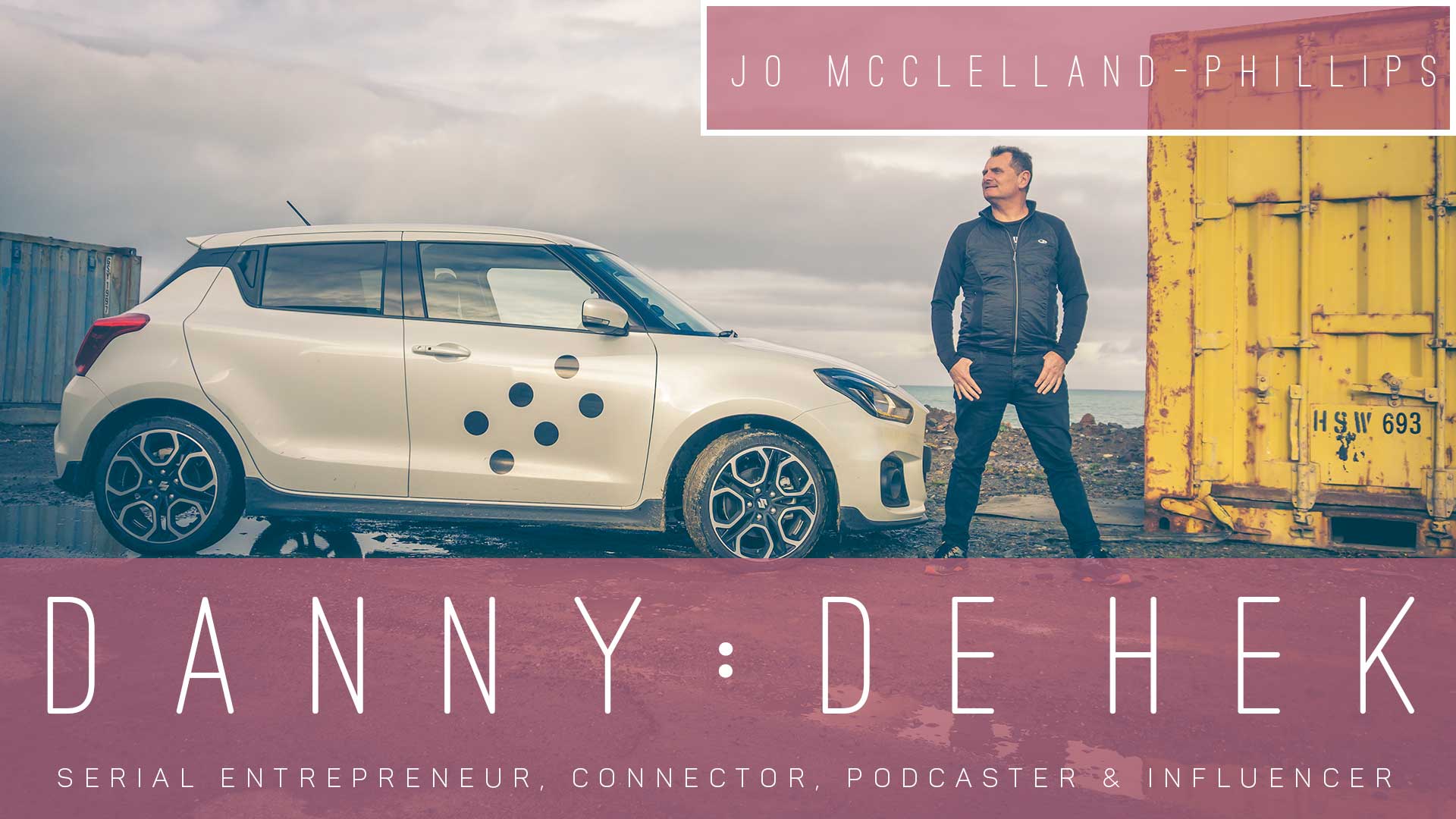
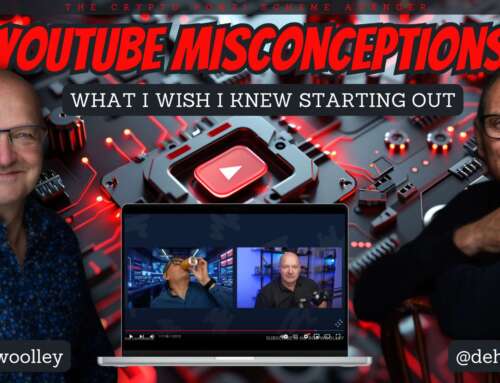
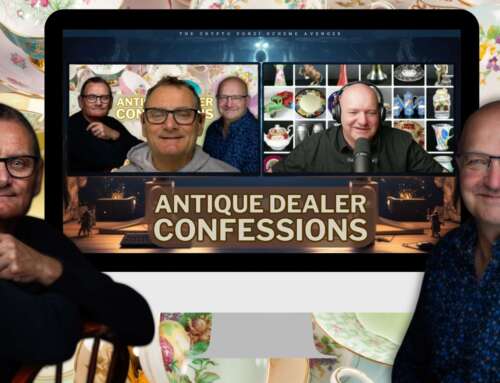
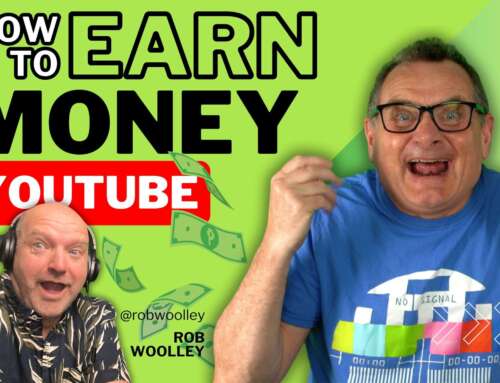
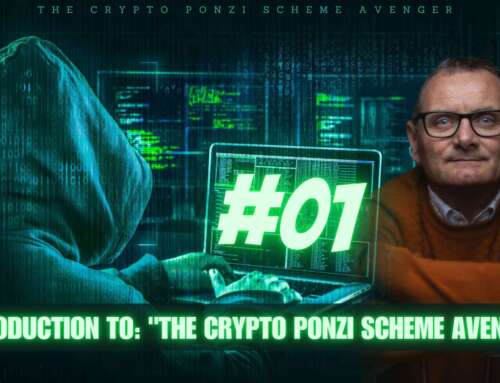
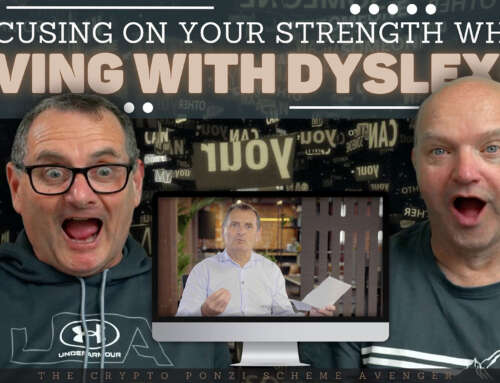
Leave A Comment